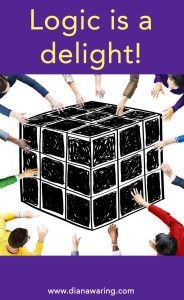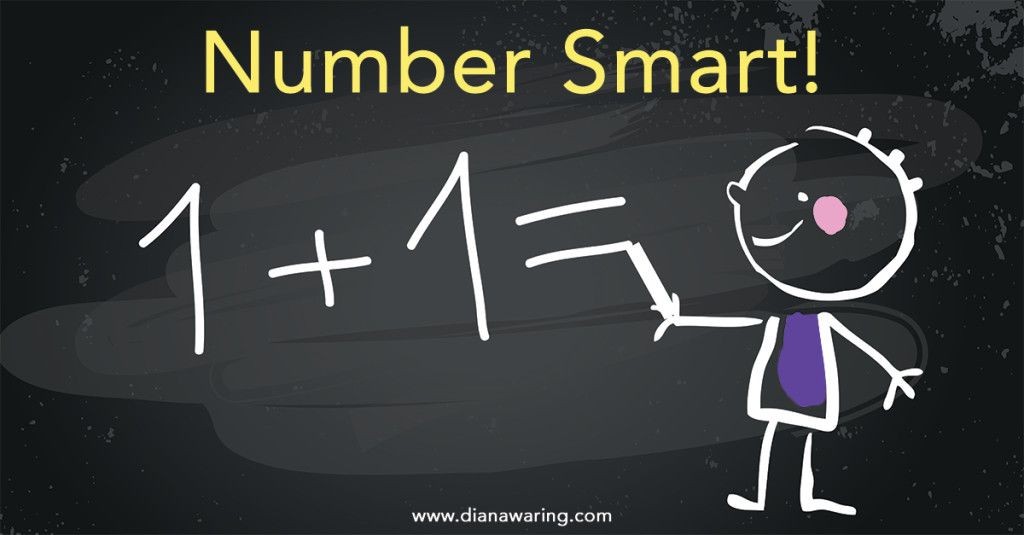Do you thrill to the elegant precision of mathematical formulas? Do you love to do calculations in your head? Do you enjoy reconciling your bank account? If so, you are strong in the Math-Logical intelligence—you are Number Smart!
Schools tend to recognize and reward just two ways of being smart—Word Smart and Number Smart. If you’re good at numbers, you probably excelled at math and science. And, quite possibly for you, logic is a delight! The important STEM subjects—Science, Technology, Engineering, Mathematics—are right up your alley. Here is a brief excerpt from my book, Reaping the Harvest:
Some of the characteristics of this intelligence are:
- uses logic to think through issues
- strong in computer logic and easily able to learn computer programming
- enjoys grouping and sorting
- experiments with various possibilities to better understand how systems work
- loves to ponder (for instance, “What causes black holes in the universe?”)
- comfortable doing calculations without paper and pencil
- enjoys strategy games like Clue, Stratego, and puzzles that demand logic
- likes to see the sequence, the order.
Even if you are not a strong Word Smart person, being Number Smart is well rewarded in schools and many careers. And, if you’re homeschooling a Number Smart kid, you are undoubtedly enjoying how easy it is for this child to do math and science. That doesn’t mean, however, that it is necessarily easy for them to play athletic games, to sing, to paint, or to write creatively! Remember, there are eight different ways of being smart, so there are going to be areas where each of us find it easy and other areas where we find it much more difficult. In fact, as we consider our kids, we need to think about the way each one is smart.
So, instead of the old way of thinking (and talking) about this:
 Well, my daughter is REALLY smart, but my son is just not quite up to her abilities.
Well, my daughter is REALLY smart, but my son is just not quite up to her abilities.
My one son is absolutely BRILLIANT, but my other son is just lazy—he gives up before he gets it.
Try thinking (and talking) like this:
Well, my daughter is REALLY smart with numbers, so I think she must have a high Math-Logical intelligence. My son, though, is REALLY smart when it comes to playing baseball, so I’m thinking that he must have a high Body Smart intelligence. And they are both pretty equal when it comes to language. Wow, BOTH my kids are smart!!
My one son is absolutely BRILLIANT when it comes to writing! I can’t believe the incredible short stories he’s authored! My other son is absolutely BRILLIANT when it comes to painting! Goodness, how did he ever learn how to do that? People at church have been commenting on that painting he did last month. . . I’m so blessed to have TWO brilliant kids!
Notice the difference? When we look at the 8 areas of intelligence, we see the different ways each of our kids is smart (and each of us is smart, too). And that will change your homeschooling journey profoundly.
Here is the list (and the blogs) of the Eight Intelligences:
If you are looking for a curriculum that provides opportunities for all eight intelligences, be sure to examine my History Revealed series. It is uniquely designed to work with the different kinds of learners, different kinds of intelligence, and different interests of a wide variety of students.

In the Student Manual on Page 217, one optional research project is to learn more about the Hundred Years’ War between France and England. In the Teacher Guide, on Page T217, it offers this suggestion for reporting what the student has discovered:
Create a flip chart (or PowerPoint) presentation, which will help your audience understand the Hundred Years’ War. You might want to include such things as the different stages of the war, the most important personalities, the famous battles, and the reasons for the beginning and ending of the war.

